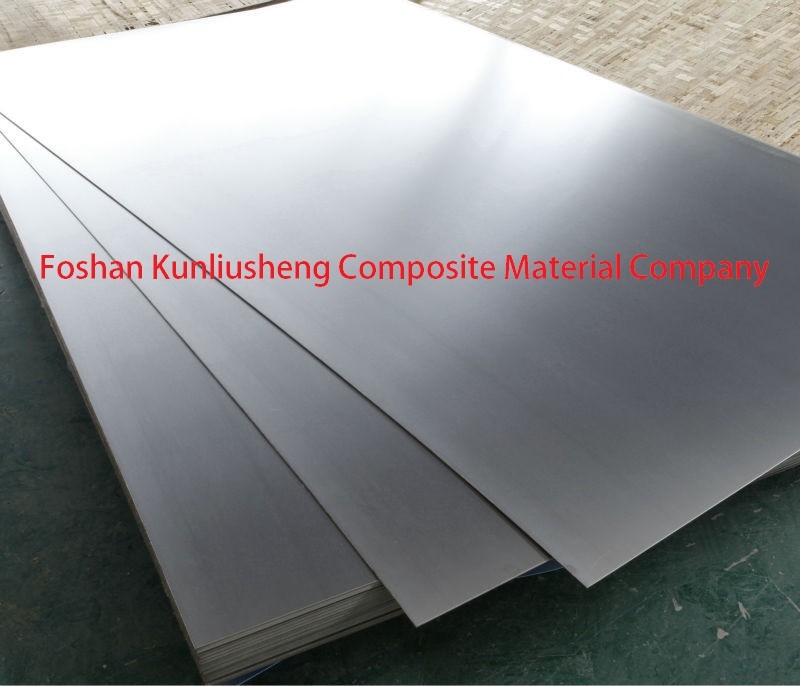Your Position: Home - Titanium Sheets - Tips to Solve Common Issues When Purchasing Titanium Sheets
Titanium sheets are highly valued in industries such as aerospace, medical, and marine for their exceptional strength, lightweight properties, and resistance to corrosion. However, purchasing titanium sheets can come with challenges if you're not familiar with the key factors that impact their performance and cost-effectiveness.
One of the most frequent mistakes is not understanding the difference between the grades and alloys of titanium. Titanium alloys, such as Ti-6Al-4V, Ti-5Al-2.5Sn, or commercially pure titanium, each have distinct properties suitable for different applications. For example, Ti-6Al-4V is commonly used in aerospace for its high strength-to-weight ratio, while commercially pure titanium is often used in medical implants due to its excellent biocompatibility.
It’s crucial to match the right grade to your specific application. Choosing the wrong alloy could result in reduced performance or higher costs. Always consult with the supplier to ensure you select the proper grade for your needs.
Titanium is known for being an expensive material, and price fluctuations are common due to factors such as market demand and raw material availability. However, the price of titanium sheets can vary depending on the grade, thickness, and size you require. Buyers may be tempted to choose a lower-priced option, only to realize later that it does not meet their strength or durability requirements.
To avoid overpaying or under-purchasing, request multiple quotes from suppliers, compare pricing based on your required specifications, and ask for detailed breakdowns of costs, including shipping and handling fees.
Thickness is one of the most important specifications for titanium sheets. If the thickness is too thin, the material may not be able to withstand the stresses or environmental conditions of the intended application. On the other hand, purchasing thicker sheets than necessary can lead to higher costs and wasted material.
For example, in the aerospace industry, using the correct thickness for titanium plates is critical for aircraft components to function efficiently without adding unnecessary weight. Similarly, in the medical field, using the appropriate thickness ensures that implants are both strong and lightweight. Always verify the required thickness with your design specifications before making a purchase.

The surface finish of titanium sheets plays a critical role in their functionality and longevity. For instance, a polished or mirror finish provides an extra layer of protection against corrosion and is often used for marine and medical applications. On the other hand, a matte or rough finish might be more suitable for industrial use where aesthetics are not as important.
Ensure you clearly specify the required surface finish when purchasing titanium sheets, as different finishes will affect both cost and performance. For example, a marine-grade titanium sheet with a polished finish is likely to cost more than a standard matte finish, but it will offer greater corrosion resistance.
A medical equipment manufacturer once bought titanium sheets for implants but mistakenly ordered an alloy that was too brittle for the intended purpose. As a result, the implants failed during clinical trials. After consulting with the supplier and selecting a more appropriate alloy, the company successfully launched their products, preventing further setbacks.
In another case, a marine engineering company purchased titanium sheets without fully specifying the required surface finish. As a result, the material began to corrode faster than expected when exposed to seawater. After switching to sheets with a mirror finish, the corrosion was significantly reduced, leading to better long-term performance and reduced maintenance costs.
Before making any purchase, define your specific needs. Know the grade of titanium, thickness, dimensions, and surface finish required for your project. If you're uncertain, consult with experts or your design team to ensure you're making an informed decision.
Always work with a reputable supplier that offers clear documentation, including certifications for material quality and compliance with industry standards. Look for suppliers that provide detailed product information and customer service to help guide your purchase.
Before committing to a large order, request samples or test reports to verify the material’s quality and suitability for your project. This ensures that the titanium sheets meet your specific needs and are of the highest quality.
If you're ready to purchase titanium sheets or need help choosing the right materials, contact our team today. We offer high-quality titanium sheets tailored to your needs, along with expert guidance to ensure you make the right decision for your project.
116
0
0
Previous: None
Next: none
Comments
All Comments (0)